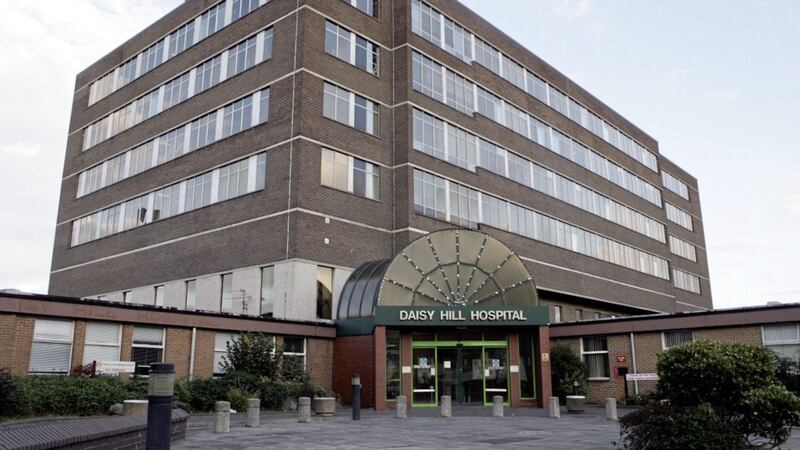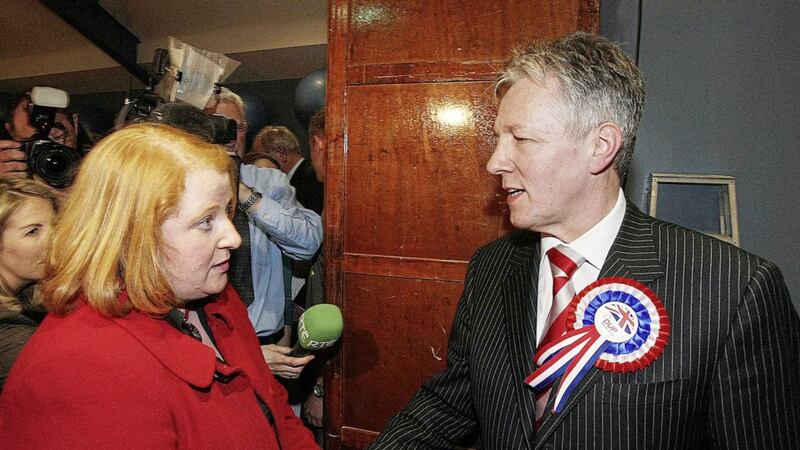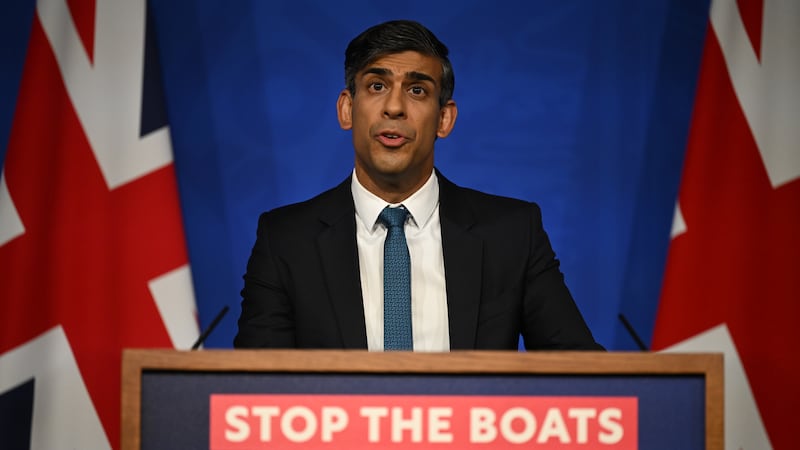Pressure on the DUP to restore the executive over the coming months will supposedly be provided by the accelerating collapse of the health service.
This somewhat clichéd hope is not entirely baseless. A voter rebellion over hospital waiting lists chased the DUP and Sinn Féin back to Stormont in 2019. Waiting times for many procedures have since doubled.
The popularity of health minister Robin Swann during the pandemic was reflected in his large personal vote last week. Even in Northern Ireland, even at pivotal moments of change, even when unionism is obsessed over inspecting packets of ham at Larne, a healthcare crisis still registers at the ballot box.
The DUP wants to return to Stormont - it has nowhere else to go. The state of the health service will provide a useful excuse to accept some tweaks to the protocol and limp back into office.
However, healthcare is only collapsing because Stormont has proved incapable of taking obvious and agreed steps to reform it throughout two decades of on-off devolution. That will not change when new ministers are appointed and there is one important respect in which this paralysis is about to get worse.
The incoming executive will have an SDLP opposition, possibly joined by the UUP. That removes any faint chance of all-party consensus on the difficult decisions required.
By an unfortunate fact of political geography the two most marginal general hospitals in Northern Ireland, the Downe and Daisy Hill, are in nationalist battleground constituencies. Last August, SDLP leader Colum Eastwood told BBC’s The View his party’s representatives would not lobby against health service reorganisation in their areas, provided changes had been recommended by experts, were “sensible” and would involve patient travel times of no more than an hour. This would have complied with the 2016 Bengoa Report, adopted by all five executive parties as policy. But Eastwood’s promise went out the window during the election campaign, with the SDLP standing outside Daisy Hill waving placards to ‘save’ it.
The party claimed salvation could come through all-Ireland cooperation, although that would just mean downgrading a hospital on the other side of the border, or sending patients to Drogheda instead of Craigavon.
With the SDLP in opposition there will no longer be the slightest pretence of honouring Bengoa and the parish pump of local objections will become a raging torrent. In fairness to the SDLP, there is no reason to believe the UUP would be any better. All five main parties have objected in practice to individual Bengoa reforms they support in principle.
After New Decade, New Approach, which recommitted everyone to Bengoa, the DUP and Sinn Féin demanded the three smaller parties join them as executive mudguards, then refused to choose health when departments were allocated, then undermined Swann at every opportunity. The one advantage of mandatory coalition should be securing political cover for tough choices.
A good crisis in devolution is now going to waste. Labour direct rule ministers plotted to introduce water charging during the lengthy Stormont collapse before the St Andrews agreement, which helped bring the DUP and Sinn Féin to terms, even if it did not fix funding of the water service.
Such muscular intervention has gone out of fashion. Conservative ministers deliberately did nothing during the three-year welfare reform stand-off, then created the decision-free limbo of ‘indirect rule’ after RHI. Changes to Stormont’s rules in New Decade, New Approach mean caretaker ministers will linger in office, potentially into early next year, unable to take significant decisions or pass a budget. Although the secretary of state has directly intervened to commission abortion services, that has been a fraught and protracted special case. Ordering major reform of healthcare is nowhere on the horizon.
Northern Ireland is hardly unique in struggling with this issue but we seem uniquely unable to confront its democratic intractability. A decade ago, the NHS in England was put under the control of the NHS Commissioning Board, an independent arms-length body that takes planning and delivery out of ministerial hands. The government gives it a budget and a basic task of providing public healthcare, then leaves managers to decide how to do it. Similar models are followed around the world.
Tragically, this is the only type of quango Stormont seems unwilling to establish. If we had a ‘Translink’ for healthcare it could move services around as freely as buses, and every executive and opposition party could wave placards against their own policy to their parish pumping heart’s content.








